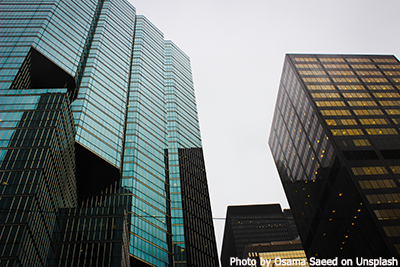
No Tax on Condo Dues – GPP Advances Next?
By Atty. Irwin C. Nidea Jr.
"For almost a decade, the BIR has been imposing an invalid tax. What can you do to recover your erroneous payments? You can file a claim for refund. But the Tax Code provides that a taxpayer must file a claim for refund within two (2) years from the erroneous payment, regardless of any supervening event."
If you are living in a condominium or in a village that collects condominium or association dues, and VAT is imposed on your bill, it is time to inform your homeowner’s association to stop this practice and file a claim for refund with the BIR. The homeowner’s association must also try to recover the erroneously paid income tax.
The Supreme Court (SC) recently ruled in the First E-Bank Condominium case (GR No. 215801), that condominium association dues, fees, and other charges are not subject to income tax, VAT, and withholding tax. It held that RMC No. 65-2012, which was issued by the BIR to collect these taxes, is invalid.
 The SC decision made the following important points:
The SC decision made the following important points:
1. A condominium corporation is not engaged in trade or business. A condominium corporation is not designed to engage in activities that generate income or profit. Under the Condominium Act, the corporate purpose of a condominium is limited to holding the common areas, management of the project, and such other necessary, incidental, or convenient purposes. It is allowed under the same Act to collect association dues, fees, and other charges purely for the benefit of the condominium owners. It is necessary to effectively oversee, maintain, or even improve the common areas of the condominium as well as its governance.
2. Association dues, fees, and other charges do not constitute profit or gain. The expenditures incurred by the condominium corporation on behalf of the condominium owners are not intended to generate revenue nor equate to the cost of doing business. The association dues, fees, and other charges are collected purely for the benefit of the condominium owners and are incidental to condominium corporation’s responsibility to oversee, maintain, or even improve the common areas of the condominium as well as its governance.
3. Association dues, fees, and other charges do not arise from performance of trade or business. When a condominium corporation manages, maintains, and preserves the common areas of the building, it only does so for the benefit of the condominium owners. It cannot be said to be engaged in trade or business. In collecting such fees, the condominium corporation is not selling its service to the condominium owners nor are the condominium owners buying goods and/or services from the condominium corporation when the dues are paid. Hence, there is no economic or commercial activity to speak of.
4. If there is no income tax, withholding tax cannot be collected. Only income, be it active or passive, earned by a payor-corporation can be subject to withholding tax.
For almost a decade, the BIR has been imposing an invalid tax. What can you do to recover your erroneous payments? You can file a claim for refund.  But the Tax Code provides that a taxpayer must file a claim for refund within two (2) years from the erroneous payment, regardless of any supervening event. In other words, the condominium or village associations can only recover from the BIR, up to 2 years of the illegally collected VAT and income tax on the association dues. So, illegally collected payments that were made before that are lost.
But the Tax Code provides that a taxpayer must file a claim for refund within two (2) years from the erroneous payment, regardless of any supervening event. In other words, the condominium or village associations can only recover from the BIR, up to 2 years of the illegally collected VAT and income tax on the association dues. So, illegally collected payments that were made before that are lost.
If the SC invalidated the imposition of tax on condominium dues, it may also strike down issuances that are of similar nature. One of them is tax on deposits and cash advances received from a client by a general professional partnership (GPP), like accounting firms and law firms under RMC 89-2012 and RMC 16-2013.
These circulars provide that when a GPP or other taxpayer receives a deposit or advance from a client, it must issue an Official Receipt (OR). The deposit or cash advance must be recorded as income and shall be subject to VAT. The client who made the cash advance or deposit may deduct the same as an expense, provided an OR was issued in the client’s name.
Although a GPP is engaged in business, unlike a condominium association, cash advances or deposits made by a GPP’s client is not an income of a GPP as association dues are not income of a condominium association. They do not constitute profit or gain. Deposits are usually used to pay for necessary expenses, like filing and registration fees. GPPs also pay in advance the necessary expenses in behalf of client, like transportation expense of its personnel in processing documents. They secure reimbursement from clients to recover these out of pocket expenses later on.
Following the SC ruling on condominium dues, it can be argued that RMC 89-2012 and RMC 16-2013 must be invalidated next. But until these issuances are questioned and declared void by the SC, GPPs have no choice but to continue recording deposits and advances as income and impose VAT on them, to its detriment, but of course to the benefit of the government.
The author is a senior partner of Du-Baladad and Associates Law Offices (BDB Law), a member-firm of WTS Global.
The article is for general information only and is not intended, nor should be construed as a substitute for tax, legal or financial advice on any specific matter. Applicability of this article to any actual or particular tax or legal issue should be supported therefore by a professional study or advice. If you have any comments or questions concerning the article, you may e-mail the author at This email address is being protected from spambots. You need JavaScript enabled to view it. or call 8403-2001 local 330.



